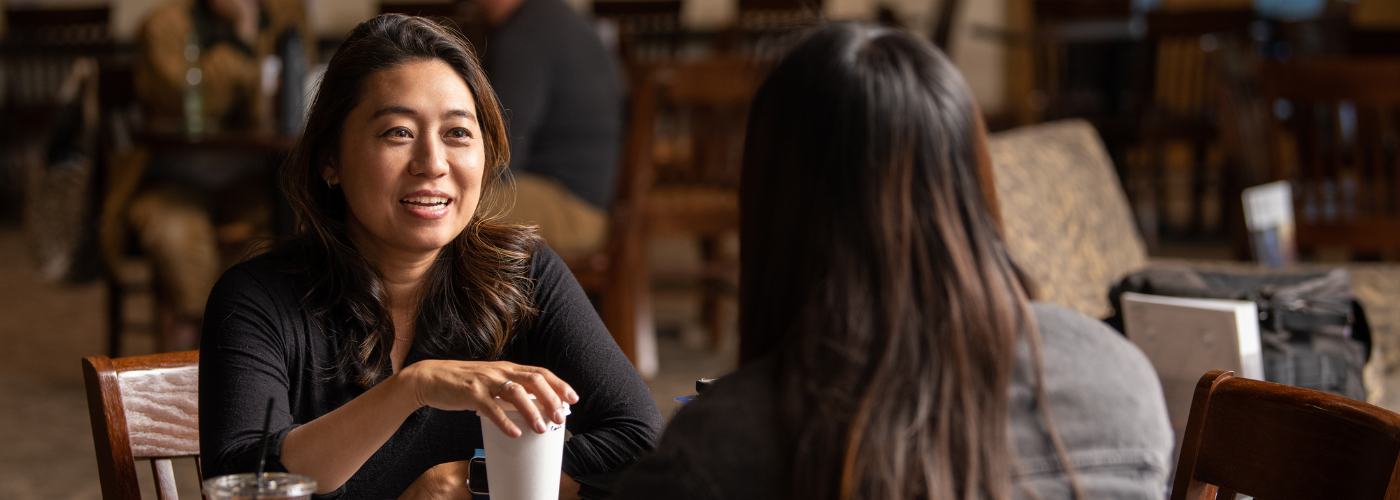-

When the training and mentoring program began in 1996 at Denver Seminary, Charlene Canady heard about it and thought, it’s about time! Her husband, Dan, had been enrolled at Denver Seminary for a few years in the 1980s while they simultaneously pastored and led worship. Though years of pastoring, homeschooling their five children, and prison Keep Reading
Personal Formation at Denver Seminary
As the primary instrument in counseling, the person of the counselor must be a whole and healthy person, known by deep character, professional skill, and knowledge. Because these cannot all be learned solely in an academic classroom, Clinical Mental Health Counseling and School Counseling students participate in the Personal Formation (PF) program. This experience draws together a network of professionals and mentors who share your journey, guiding you in how to transition the theoretical into your practical daily life. Through this, students can grow as whole persons and develop into lifelong learners who value, pursue, and experience growth through relationship with God and others.
Personal Formation Process
In your experience as a student, the Personal Formation process is:
- Intentional: it is a three-semester program embedded within students’ clinical training courses and is an integral part of the counseling curriculum.
- Individualized: students are guided in their personal growth through student-designed Formation Plans, learning activities, reflection, and mentored relationships, all based on their history and future hopes.
- Dedicated: a select team of faculty and staff are responsible for overseeing and facilitating the PF process within the CMHC and SC programs.
- Supportive (Relational): the journey is shared with other students, a seminary-based Formation Director, a student-selected Mentor, and a Professional Counselor.
- Developmental: the PF process prepares students to be lifelong learners who actively pursue character formation beyond graduation from the CMHC and SC programs.
Information for Mentors
Thank you for considering a commitment to mentor one of our Counseling students. We all need mentors in life and the fact that you are willing to serve in this way is greatly appreciated. Denver Seminary considers mentoring relationships an integral part of the seminary experience; in fact, it is part of our DNA.
Mentors are busy. On top of your daily life, your student will look to you for recognition, support, challenge, inspiration, and accountability. Your relational role involves meeting regularly with a student throughout the semester and occasional on-campus meetings with your student and his or her formation director. Your student will develop a formation plan to address a growth need in their character formation. As you meet, your guiding voice will help your student identify formation needs and reflect on the practices they choose to engage each semester. We ask each new mentor to view a brief orientation online for more information about how to mentor a student.
As you speak into your student’s life in a personal and practical way, your relationship will help them reflect holistically as they discern, develop, and manage their unique life and service beyond seminary.
Thank You
As part of our gratitude for your commitment as a mentor, we offer a couple of “mentor perks” – a Seminary library card and the ability to audit residential courses for a small registration fee. Course audits are limited to space available, one per semester, and your student must be enrolled in a TM course during that semester.
Contact Bethany Adams to learn more about becoming a mentor for our students.

